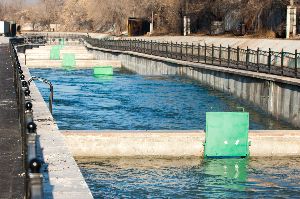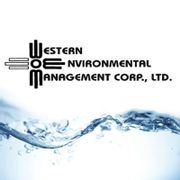A Guide to Water Treatment Chemicals & Safety

Having access to a safe drinking water supply is key for various industries to operate. For example, if your fracking project is halted due to a stagnant pond, the contaminated water could compromise your project. When this happens, it's crucial to work with a seasoned water treatment company. This guide discusses how professionals handle chemical water treatment and what safety precautions they take.
How Water Treatment Chemicals Work

Water purifying chemicals are added to untreated water to make the fluid safer to drink. The chemicals kill harmful microorganisms, including bacteria, water-borne viruses, and protozoa. Professionals usually handle these water treatment chemicals in industrial settings in the form of tablets. However, liquid drops and powder chemicals are also common.
When the chemicals are added to water, they release chlorine or iodine, which immediately kill the harmful microorganisms on contact. However, while these chemicals are reliable, professionals first take a few factors into consideration. They check the water's temperature, pH levels, and cloudiness. Based on their findings, they determine which solution is best suited to treat the water. Finally, they observe the chemicals to ensure they take effect.
How Professionals Stay Safe During the Treatment Process
Water purification chemicals should be handled carefully. If ingested, they could irritate the sinuses, mouth, and throat, as well as cause abdominal pain, vomiting, and nausea. Additionally, it's possible for these chemicals to be poisonous when ingested in high amounts, so this task is best left to the professionals.
Before applying water purification chemicals, experts check safety data sheets. These documents, which are mandated by the Occupational Safety and Health Administration, offer tips on how to safely handle such chemicals. These sheets are usually kept near the water tanks.
Experts also use specialized personal protective equipment (PPE) to prevent accidental burns or contact with tablets, power, or liquid chemicals. Crucial PPE includes gloves, face shields, eyewear, respirators, and aprons. This equipment must be kept in functional working order to fully protect handlers.
If your project requires efficient water purification chemicals, trust the team at Western Environmental Management to get the job done. Serving industrial clients in all of New Mexico and El Paso, TX, these professionals apply and safely handle water treatment chemicals. They also offer water softening treatments, reverse osmosis units, and demineralizers. Visit them online to browse their services and call (575) 885-5709 to discuss your needs.
About the Business
Have a question? Ask the experts!
Send your question

